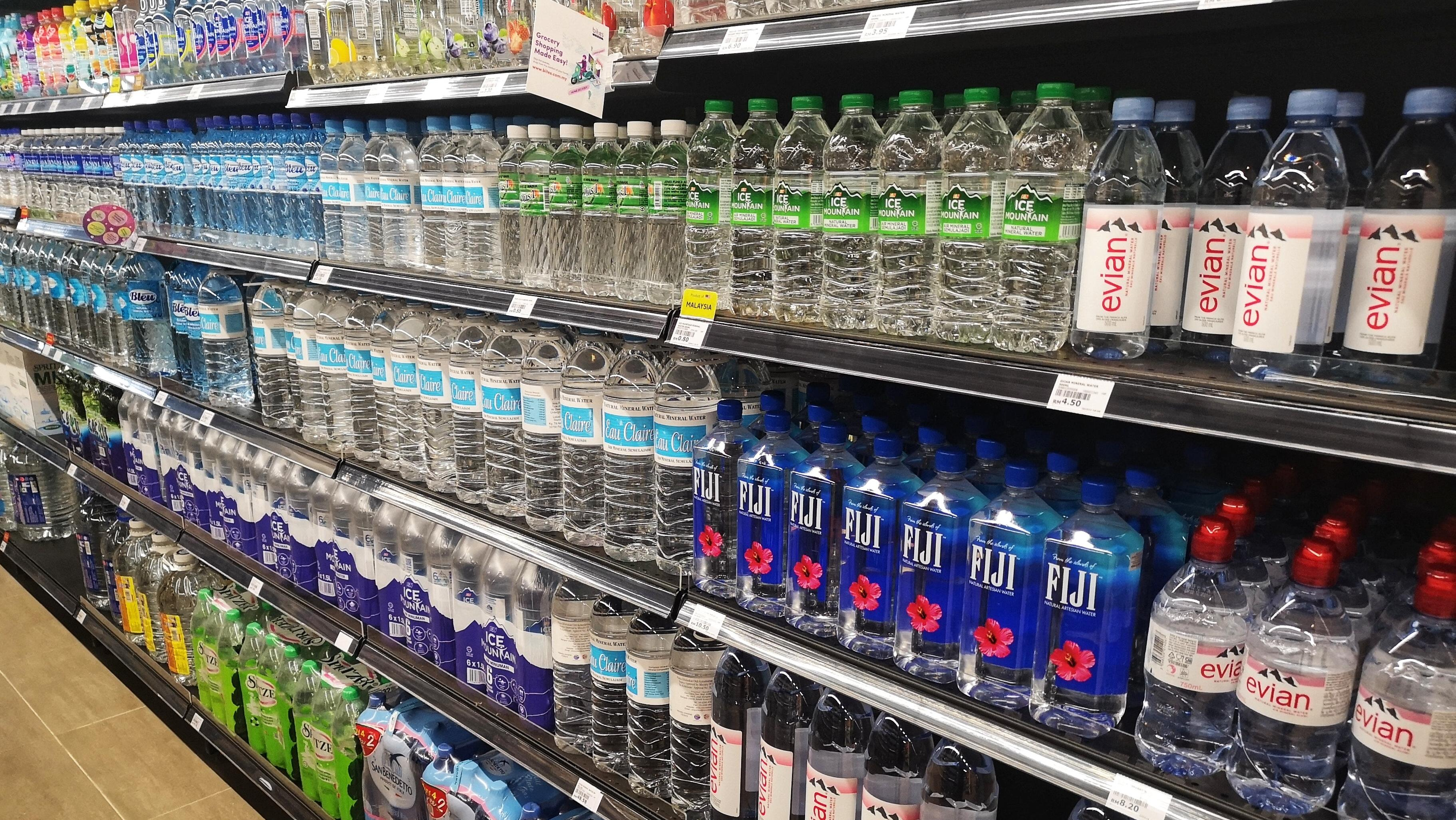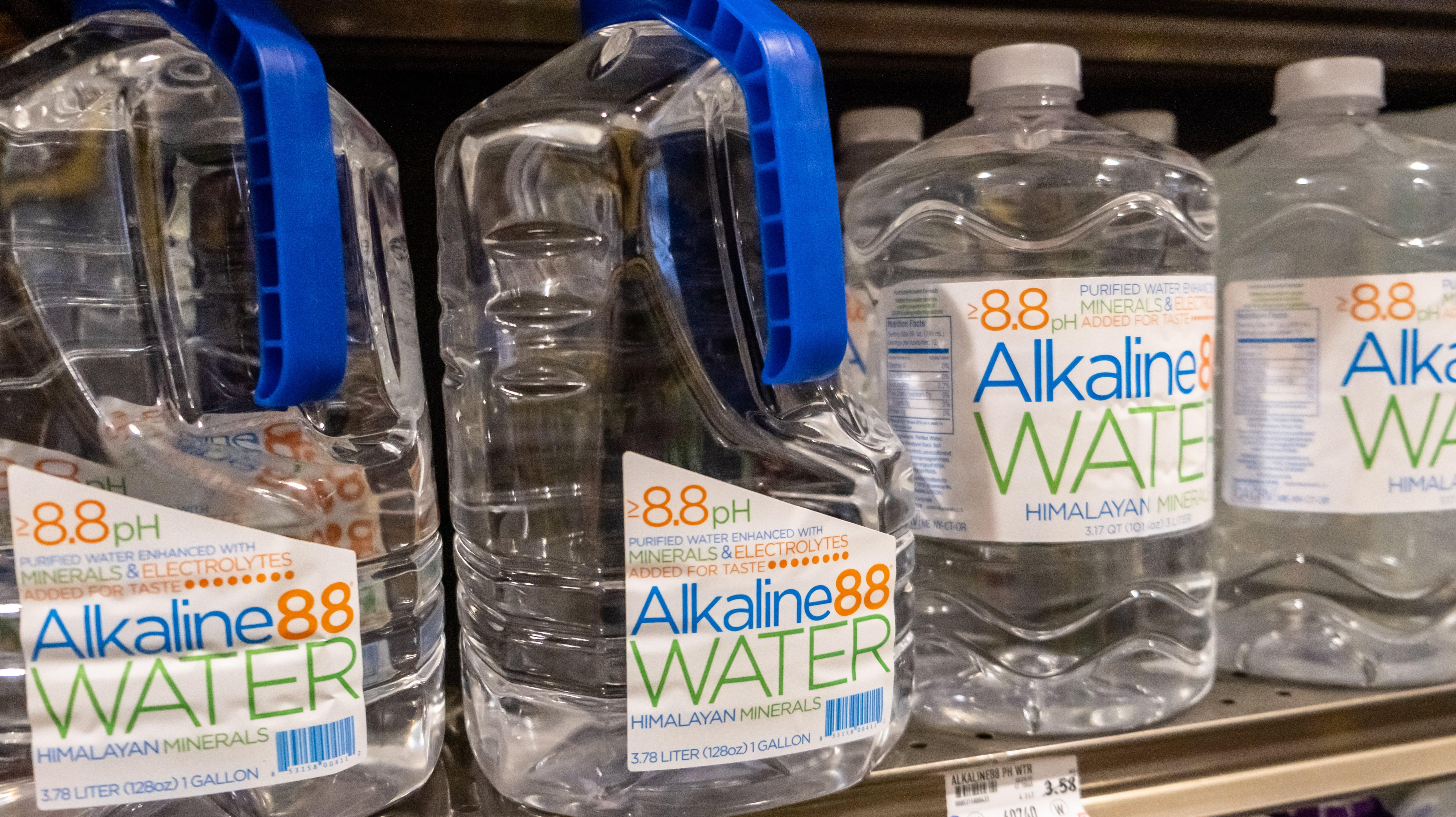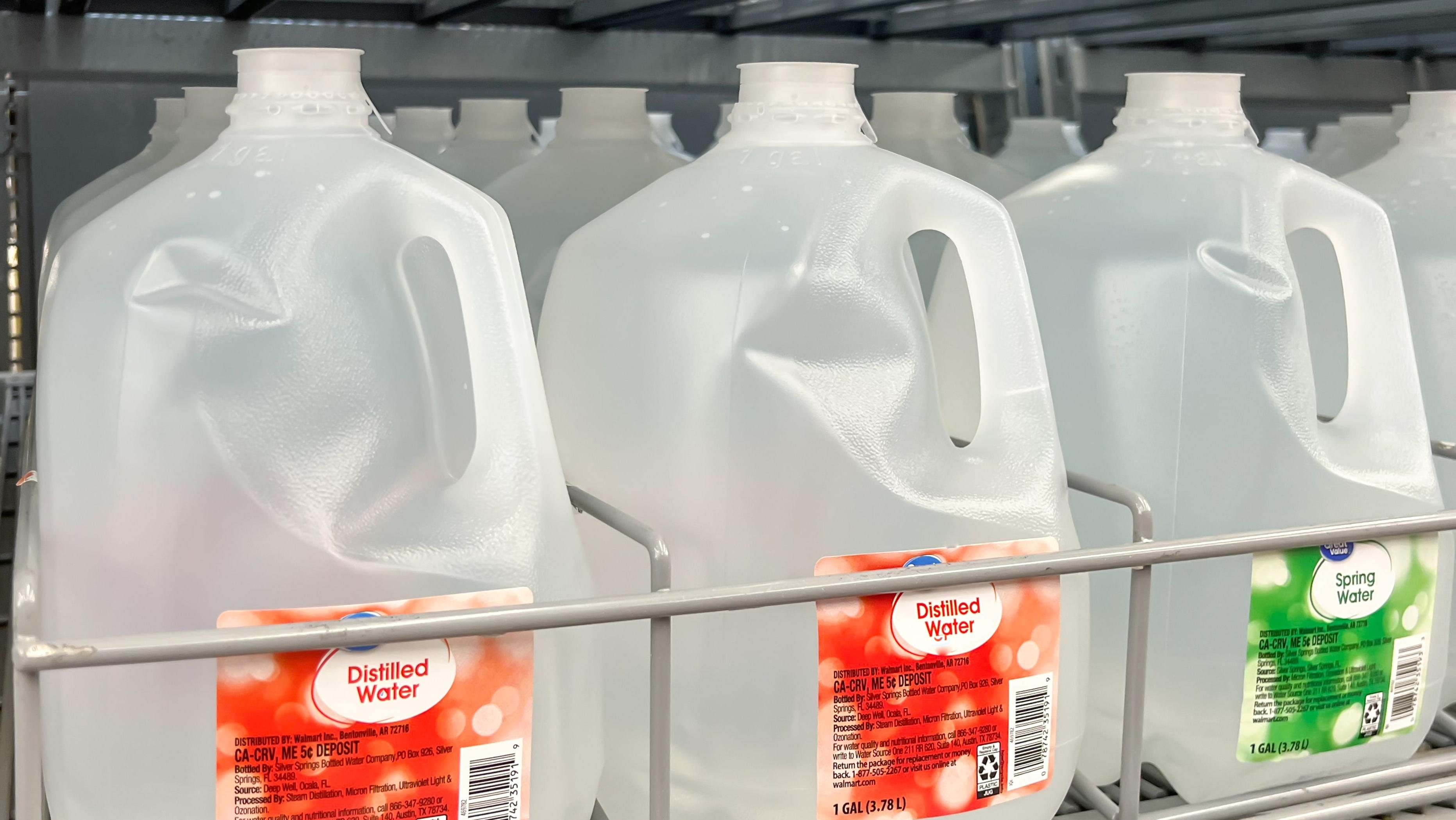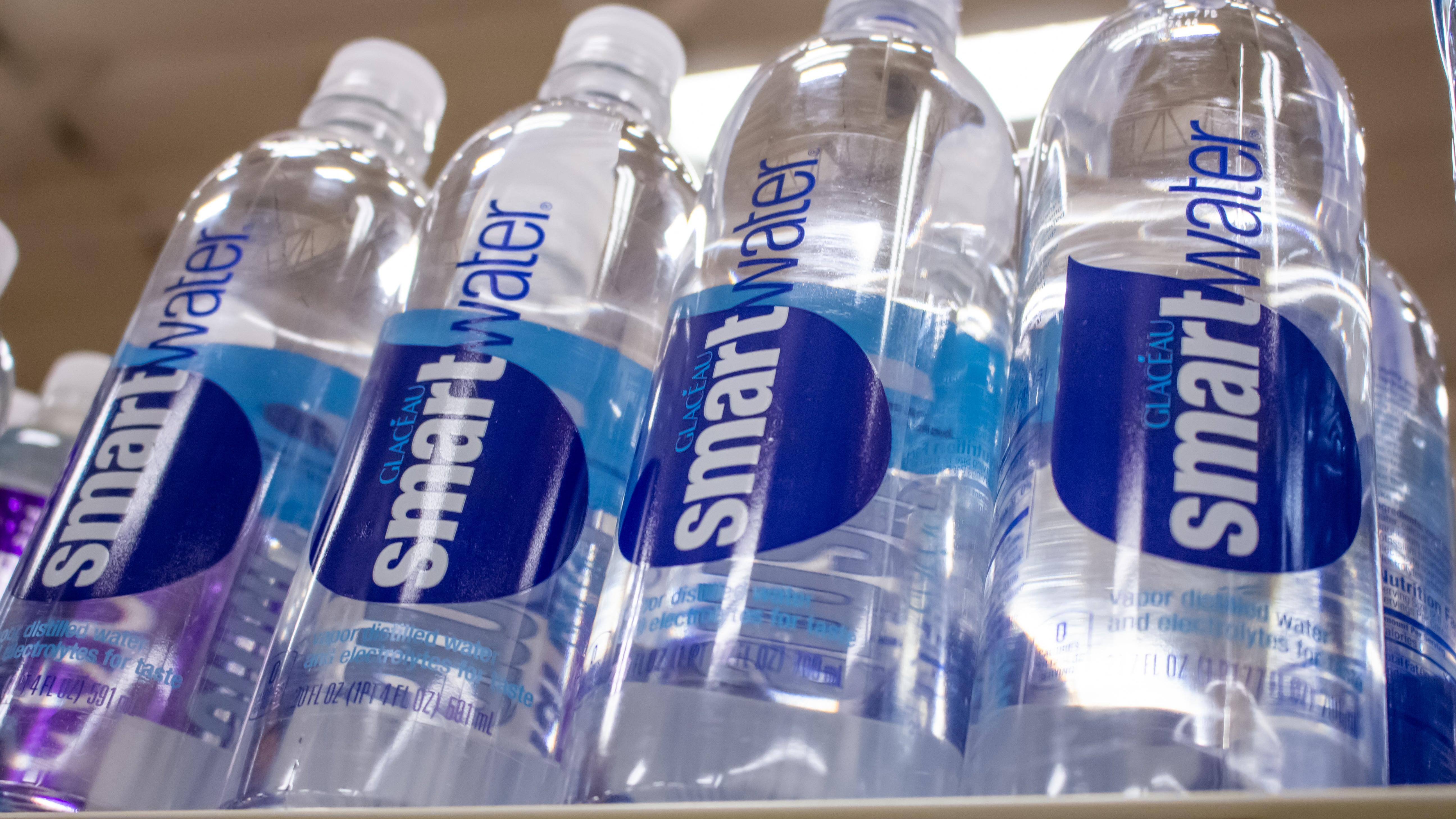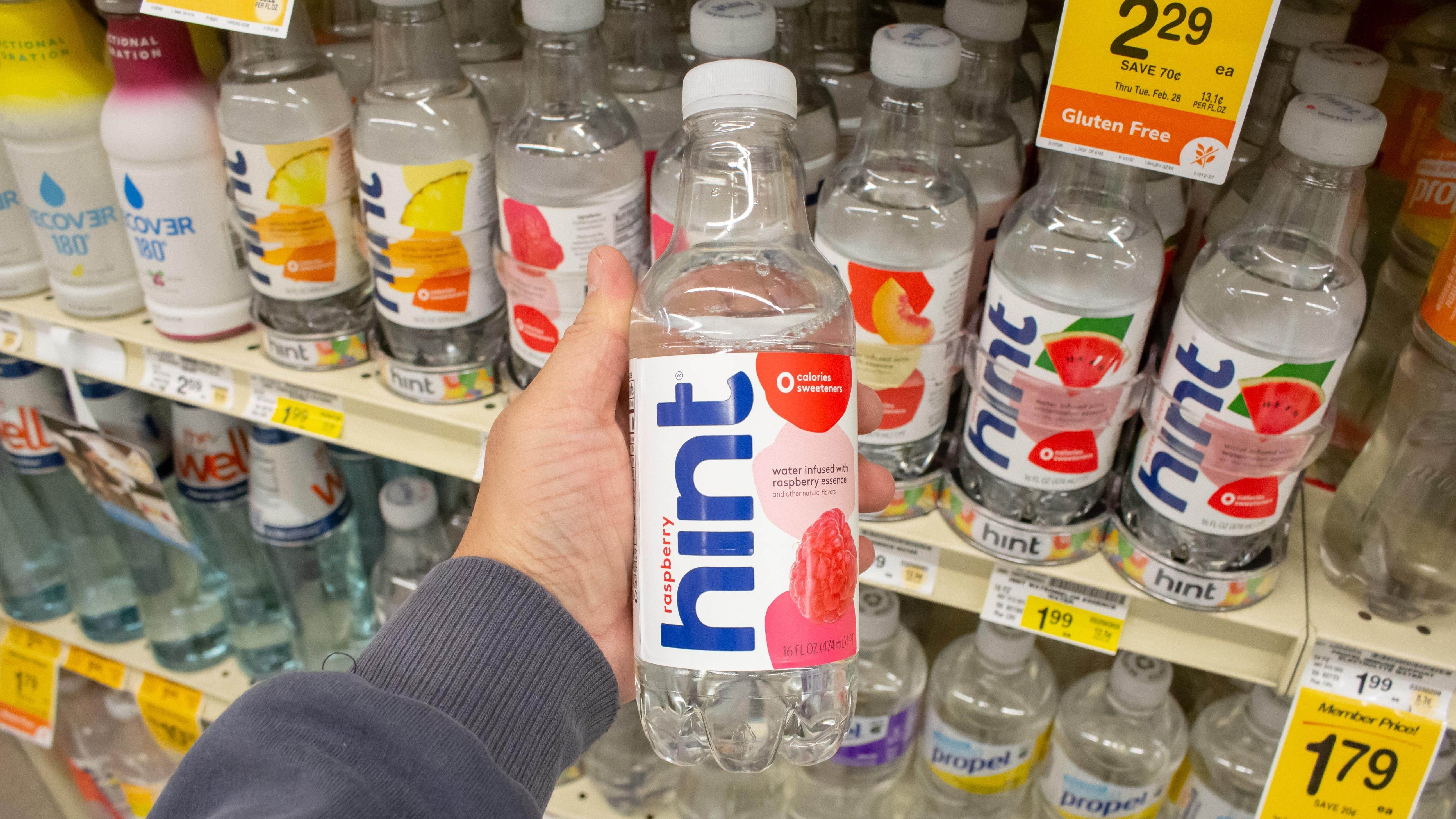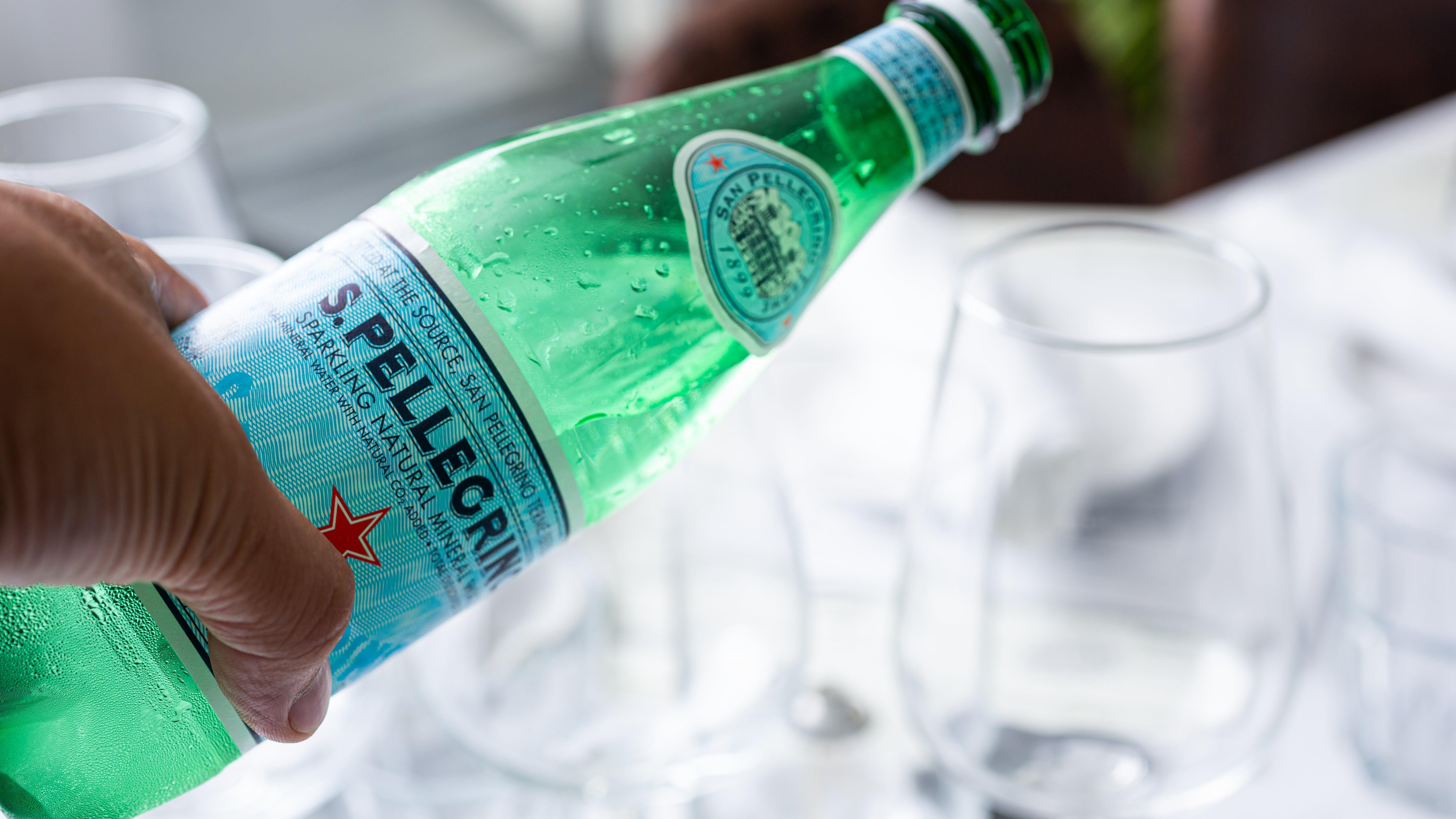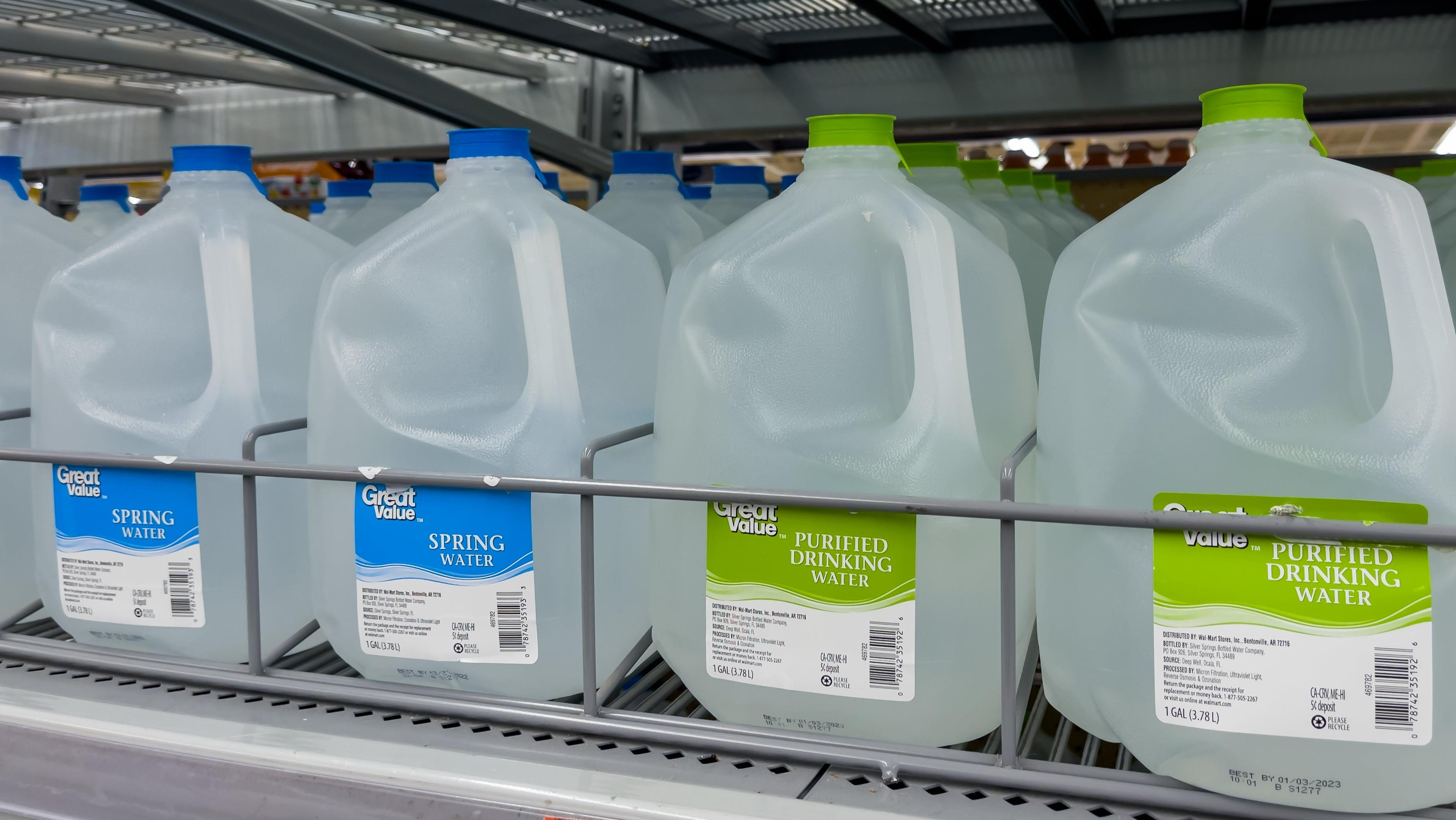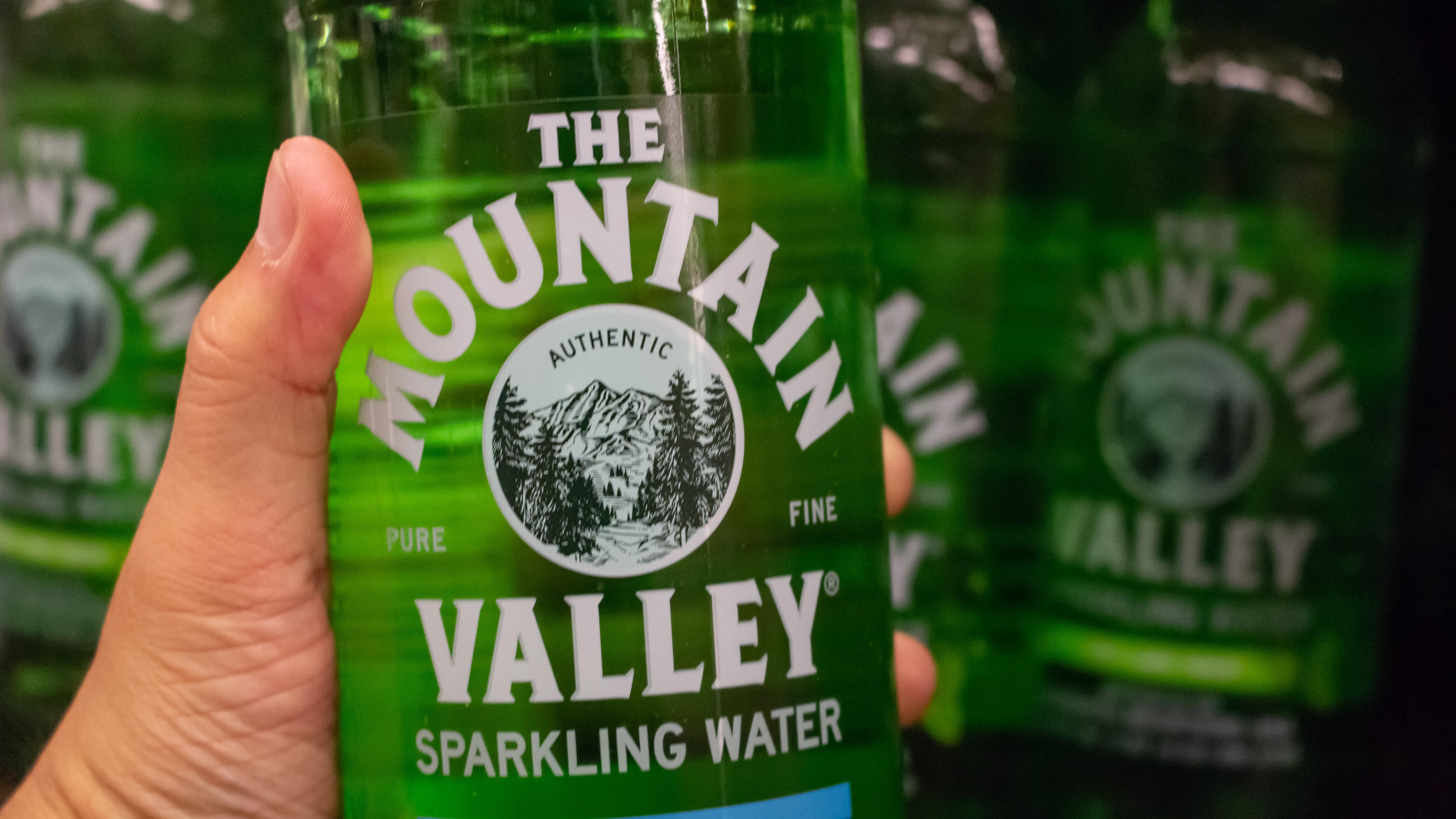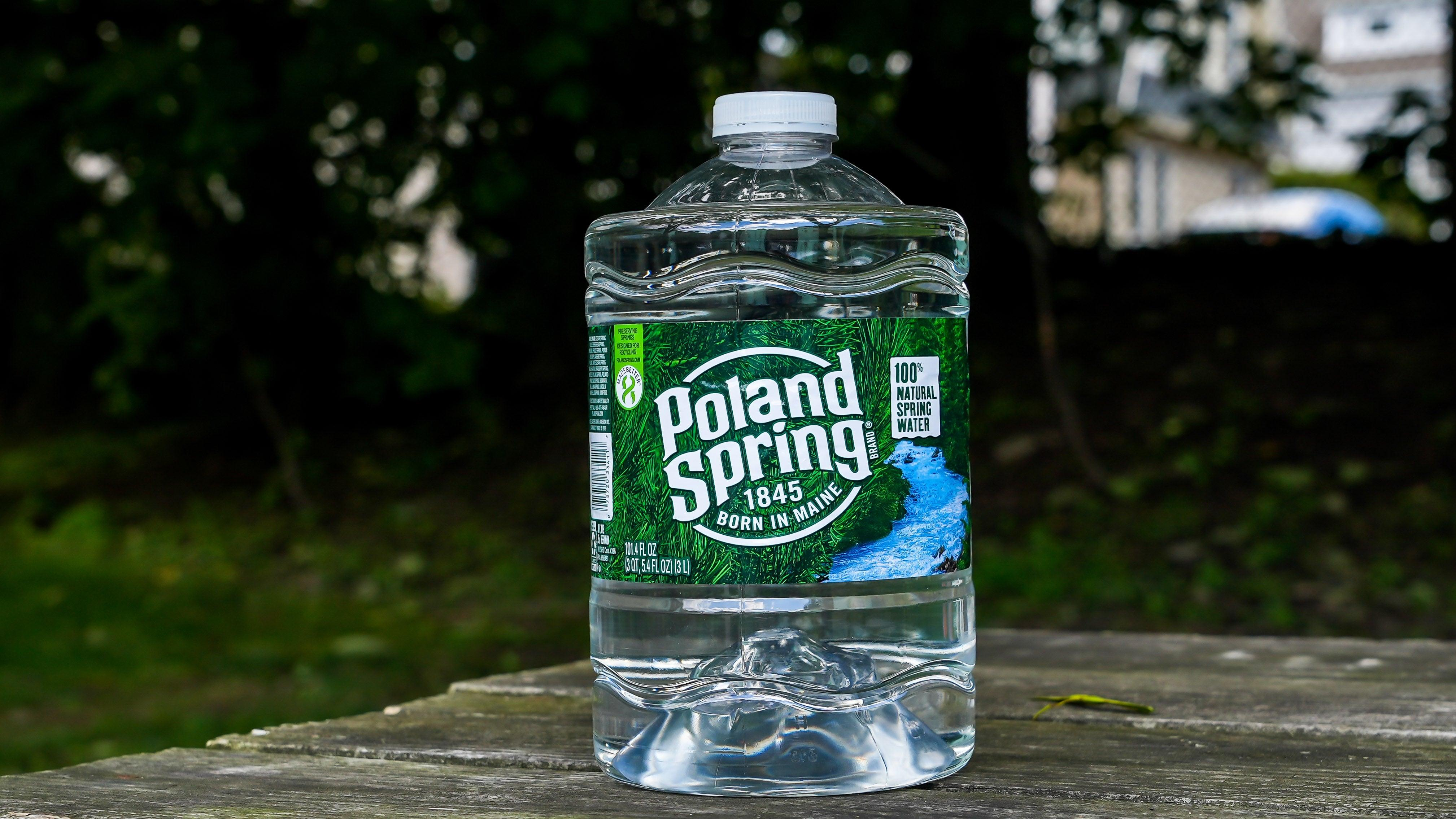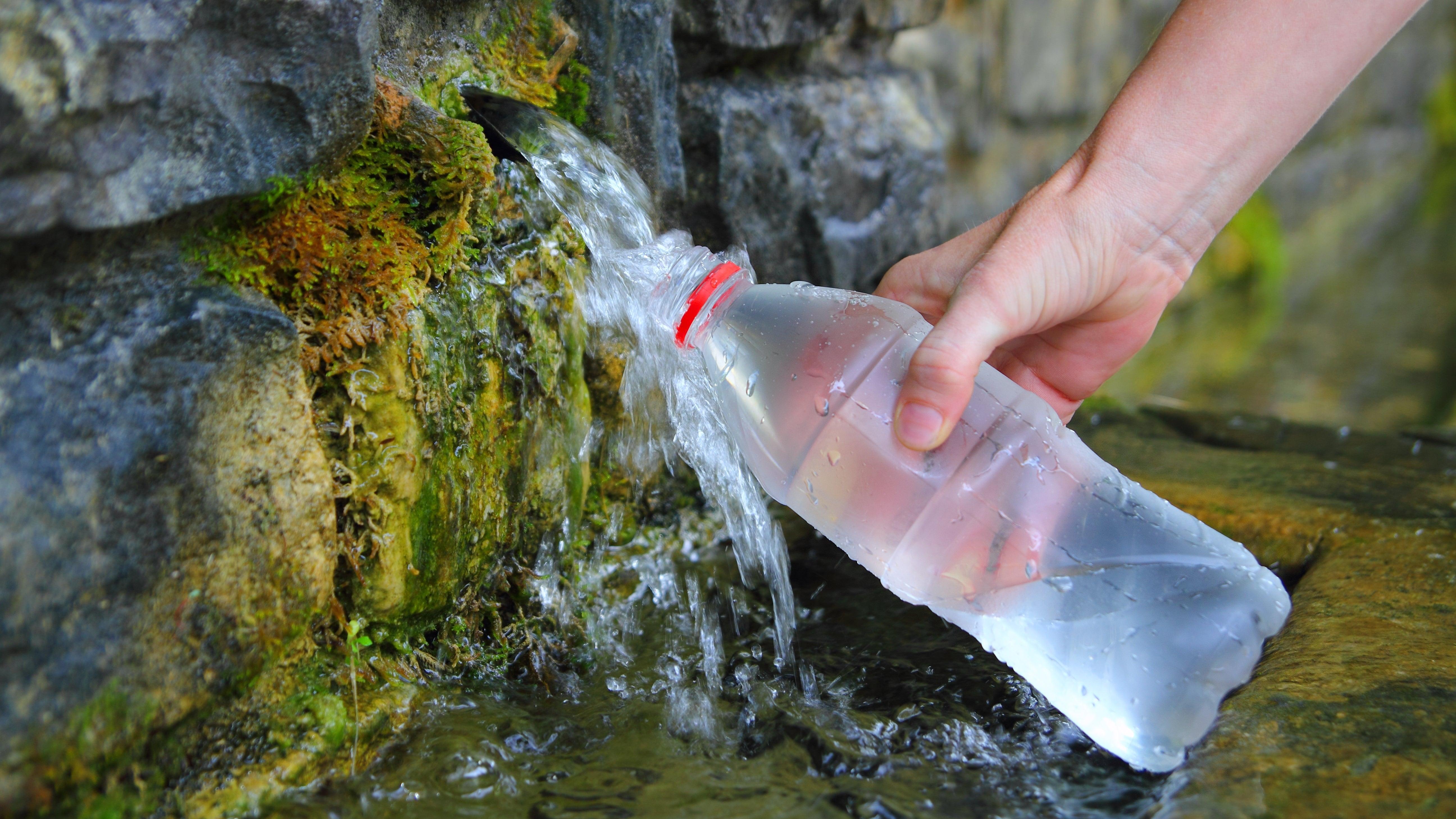Every Type Of Water At The Grocery Store, Decoded
Distilled water, purified water, mineral water, spring water—what do all these terms actually mean?
Step into the bottled water aisle at the grocery store and you'll be inundated with products that claim to contain the purest, cleanest, and healthiest H2O on the planet. The packaging boasts that these water products are better than the next one on the shelf, despite the fact that their main (and often only) component is—you guessed it—water.
Teasing apart all of the various marketing terms, which often overlap, can be confusing. Here's an overview of the categories you're most likely to find and what each one really offers.
Alkaline water
Alkaline water is any water with an adjusted pH level to make it less acidic than regular drinking water. While typical tap water is neutral, with a pH of 7, so-called alkaline water can be packaged between a pH level of 8 or 9, adjusted by the use of minerals.
Some people believe alkaline water has health benefits and can do things like slow the aging process or prevent cancer, but not enough longterm studies have been done to substantiate those claims or create scientific consensus. Many health professionals remain skeptical of the benefits, but drinking it is generally considered safe.
Distilled water
Distilled water is a type of purified water that's been boiled into vapor, and cooled back down into liquid into a different container. Any impurities that don't have a boiling point near that of water remain in the original boiling container.
Distilled water is as "pure" as it gets, but unless you don't have any alternatives, it's not particularly great for drinking. It has zero trace minerals in it, which might sound nice and clean, but you need those minerals to maintain basic bodily functions. This water is more useful in non-drinking applications; there are situations where you wouldn't want mineral buildup, such as in clothing irons or humidifiers. You can still drink it and cook with it, it's just not your best option.
Electrolyte water
Electrolytes are substances that conduct electricity when they're dissolved in water, including essential minerals such as potassium, sodium, and calcium. Electrolyte water, then, is water supplemented with added electrolytes.
Electrolytes are particularly important because they assist with fluid balance, blood pressure regulation, and muscle contraction. However, unless you're buying water that is also distilled, most water, whether tap or bottled, already contains a small amount of electrolytes. A lot of brands that tout their electrolytes, then, aren't all that special.
If you're an athlete or going to be in a hot environment for a long time, having a beverage with added electrolytes might be beneficial to replace those that you lose from sweating. You'll also want keep up electrolyte intake if you're sick and losing a lot of fluid from vomiting or diarrhea. Sports drinks commonly have electrolytes added, but they also come with added sugar. In general, regular water will do you just fine in the electrolytes department.
Enhanced water
"Enhanced water" is the big catchall term to cover any bottled water product that's been altered in some way with the addition of other substances. That means alkaline water, vitamin water, flavored water, and electrolyte water are all enhanced waters. A lot of these products are marketed with bold claims about various health benefits, many of which aren't scientifically proven or extensively researched.
Mineral water
Yep, mineral water has minerals in it. But which ones? Usually sulfur compounds and various salts, which occur naturally in the spring sources from which the water originates. The product is typically bottled on location before being widely distributed. Popular brands of mineral water include San Pellegrino and Perrier.
That being said, we now often toss around the term "mineral water" colloquially for any still or sparkling water that comes in bottles. True mineral water, meanwhile, is labeled as such.
Purified water
Water production has come a long way. Distilled water used to be the most common form of purified water, but now that we have technology capable of doing things like reverse osmosis—a water treatment process that forces water molecules through a membrane, removing impurities—purified water is a common product. The method not only removes contaminants like metals from the water, but also bacteria, parasites, and algae.
The end product is meant for general use like drinking and cooking, and it's useful whenever one's typical water source isn't available, such as on a camping trip, or during periods when tap water is unreliable or unclean.
Sparkling water
"Sparkling water" is the umbrella term for any carbonated water product. It can refer to naturally carbonated water, like from a mineral spring, or water force carbonated during the production process. Because the term is so broad, as long as there are bubbles in your H2O, you can call it sparkling, even if it's flavored or otherwise "enhanced."
Spring water
Spring water originates from springs, or natural formations from which water flows beneath the ground up to the surface. It's naturally filtered underground before it's bottled and distributed, and the term can apply to both naturally carbonated water and still water (depending on the spring). It might taste subtly different from tap water, because spring water contains trace minerals unique to each source.
Raw water
Raw water isn't something you'll find at the supermarket but it's worth mentioning because if you see it, you shouldn't drink it.
This "product," popularized by Silicon Valley disruptors in 2017, is simply spring water that hasn't been treated in any way to remove any impurities at all. Fans of raw water claim that this keeps more naturally existing minerals within the water that might get filtered out during the production process. However, its lack of filtration also means you're gambling with potential parasites, bacteria, and environmental contaminants. It became something of a health fad promoted by tech executives, including the founder of the ill-fated Juicero juicer. If you find it, drink it at your own risk, and prepare to pay an inflated price per bottle.
